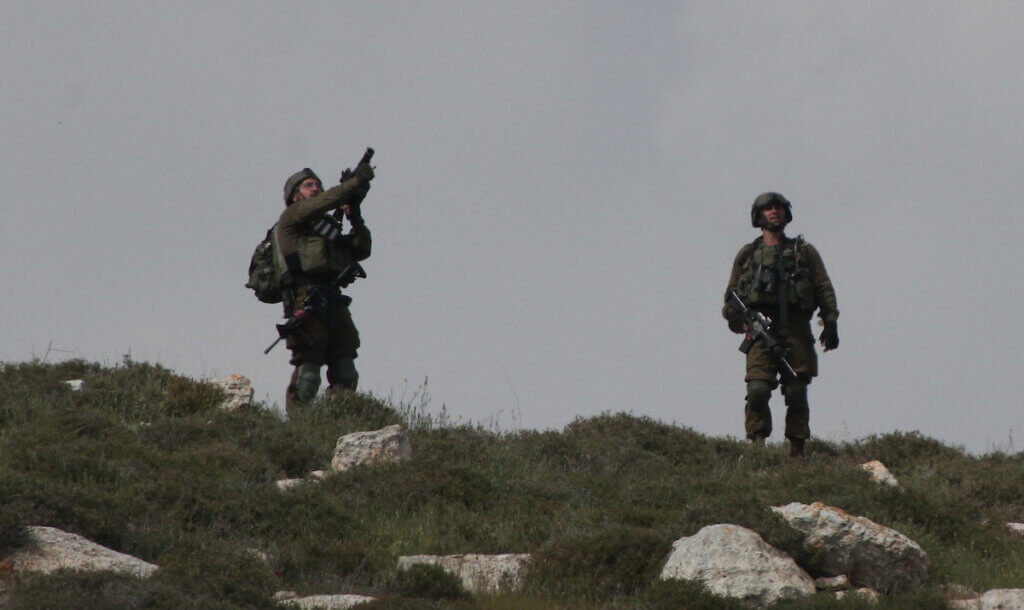A Palestinian man was shot and killed by Israeli forces on Friday during a protest in the northern occupied West Bank district of Nablus.
The Palestinian Ministry of Health confirmed that the man, 45-year-old Atef Hanaysheh, was shot with live ammunition in the head during a protest against settlement expansion and the confiscation of Palestinian-owned land in the village of Beit Dajan.
The MOH said that Hanaysheh was taken by Palestinian medics to a hospital in Nablus, where he was pronounced dead shortly after.
Eyewitnesses told Israeli and Palestinian media outlets that Hanaysheh, the local imam at one of Beit Dajan’s mosques, was shot at “point blank range” by forces who were suppressing the Friday protest — a weekly occurrence in the village.
Reuters quoted the Israeli military as saying that “dozens of Palestinian rioters hurled rocks” at soldiers in the area, who “responded with riot dispersal means and by firing into the air.”
“We are aware of reports regarding a Palestinian casualty. The cause of the injury is still unknown. The incident is being examined,” the military said.

A number of Palestinian factions, including the Hamas and Islamic Jihad movements condemned the killing of Hanaysheh, which they said was part of a “policy of murder and terror” on part of the Israeli occupation.
Hanaysheh is reported to be the third Palestinian in the West Bank killed by Israeli forces in 2021, among hundreds of others who have been injured by Israeli forces in the first three months of the year, according to UN documentation.
Palestinian demonstrations in the West Bank against Israeli settlements, the wall, and colonialist policies in the territory are a weekly occurrence, often resulting in confrontations between Palestinian protesters, who are leargely unarmed, and Israeli security forces.
Human rights groups have criticized for years what they call a policy of “excessive use of force” on the part of Israeli soldiers, who often use violent and deadly force against protesters in situations that did not pose a direct threat to the lives of the soldiers.
In 2020, Human Rights Watch (HRW) reported that between January and November, Israeli forces killed 23 Palestinians and wounded at least 3,221, including those suspected of attacking Israelis, “but also passersby and demonstrators.”
The Israeli military’s open fire regulations state that live ammunition may be fired in only two situations: when members of the security forces or other individuals are in life-threatening danger, and that members of the security forces may only shoot at a person’s legs, “as the last phase in an attempt to arrest the person in question, only after they have given warning and fired in the air, and only when no one else is in danger of getting hurt.”
Israeli human rights group B’Tselem has said that the Israeli military’s frequent use of live fire against Palestinian protesters “in breach of open-fire regulations, shows that it is a not a matter of exceptional incidents but rather the implementation of an unlawful policy.”
“This policy conveys Israel’s deep disregard for the lives of Palestinians and their property, and facilitates continued use of lethal force – a crucial element in Israel’s ability to maintain violent control over millions of Palestinians,” the group said.
Related posts:
Views: 0
 RSS Feed
RSS Feed

















 March 20th, 2021
March 20th, 2021  Awake Goy
Awake Goy  Posted in
Posted in  Tags:
Tags: 
















